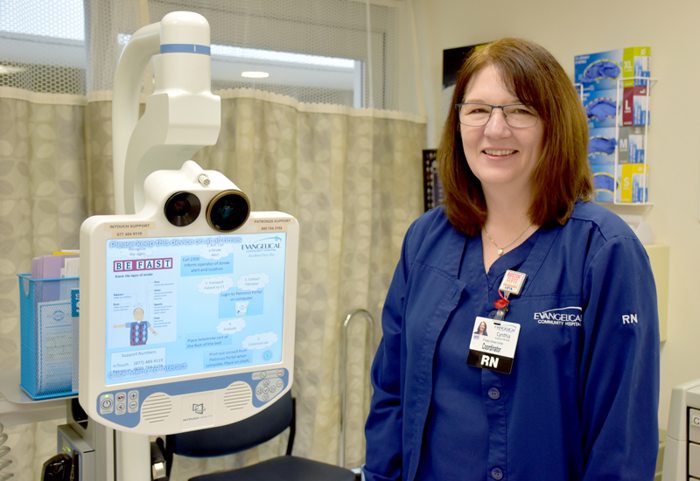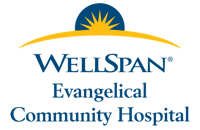Evangelical Community Hospital Receives Get With The Guidelines-Stroke Gold Plus Quality Achievement Award in 2020
August 28, 2020

Cynthia Anderson, RN, Primary Stroke Center Coordinator, with the Hospital's Telestroke technology.
Evangelical Community Hospital has received the American Heart Association/American Stroke Association’s Get With The Guidelines®-Stroke Gold Plus Quality Achievement Award. The award recognizes the Hospital’s commitment to ensuring stroke patients receive the most appropriate treatment according to nationally recognized, research-based guidelines based on the latest scientific evidence.
The Hospital was given the award in two different achievement categories, Target: Stroke Honor Roll Elite relating to stroke and the other, Target: Type 2 Diabetes Honor Roll in the treatment of Type 2 Diabetes.
Evangelical earned the Association’s Gold Plus award by meeting specific quality achievement measures for the diagnosis and treatment of stroke patients at a set level for a designated period. These measures include evaluation of the proper use of medications and other stroke treatments aligned with the most up-to-date, evidence-based guidelines with the goal of speeding recovery and reducing death and disability for stroke patients. Prior to discharge, patients receive education on managing their health and have multidisciplinary follow-up visits arranged.
To qualify for the association’s Target: Stroke Honor Roll Elite achievement, hospitals must meet quality measures developed to reduce the time between the patient’s arrival at the hospital and treatment with the clot-buster tissue plasminogen activator, or tPA, the only drug approved by the U.S. Food and Drug Administration to treat ischemic stroke.
The Hospital additionally received the Association’s Target: Type 2 Diabetes Honor Roll achievement award. Individuals living with Type 2 diabetes have an increased risk for heart disease and stroke. To qualify for the Type 2 diabetes achievement, hospitals must meet quality measures developed with more than 90 % of compliance for 12 consecutive months for the “Overall Diabetes Cardiovascular Initiative Composite Score.”
“We are pleased to recognize Evangelical Community Hospital for their commitment to stroke care,” said Lee H. Schwamm, MD, national chairperson of the Quality Oversight Committee and Executive Vice Chair of Neurology, Director of Acute Stroke Services, Massachusetts General Hospital, Boston, Massachusetts. “Research has shown that hospitals adhering to clinical measures through the Get With The Guidelines quality improvement initiative can often see fewer readmissions and lower mortality rates.”
“A stroke patient loses 1.9 million neurons each minute stroke treatment is delayed. This recognition further demonstrates our commitment to delivering advanced stroke treatments to patients quickly and safely,” said John Rice, MD, Neurologist and Medical Director of the Primary Stroke Center at Evangelical.
Dr. Rice continued, “Evangelical has put a great effort into furthering stroke education, in creating community awareness—including educating on how Type 2 diabetes and cardiovascular disease can go hand-in-hand, and in setting high standards for efficient care. With a stroke, time lost is brain lost and this award demonstrates the Hospital’s commitment to ensuring patients receive care based on nationally-respected clinical guidelines.”
The Primary Stroke Center at Evangelical was established in 2013 and is overseen by Cynthia Anderson, MSN, RN, Primary Stroke Center Coordinator. As a primary stroke center, Evangelical offers 24/7 patient-centered care from inpatient through rehabilitation services including emergency medicine, laboratory, radiology, hospitalist and neurologist care, and physical, occupational, and speech therapy.
According to the American Heart Association/American Stroke Association, stroke is the No. 5 cause of death and a leading cause of adult disability in the United States. On average, someone in the U.S. suffers a stroke every 40 seconds and nearly 795,000 people suffer a new or recurrent stroke each year.




